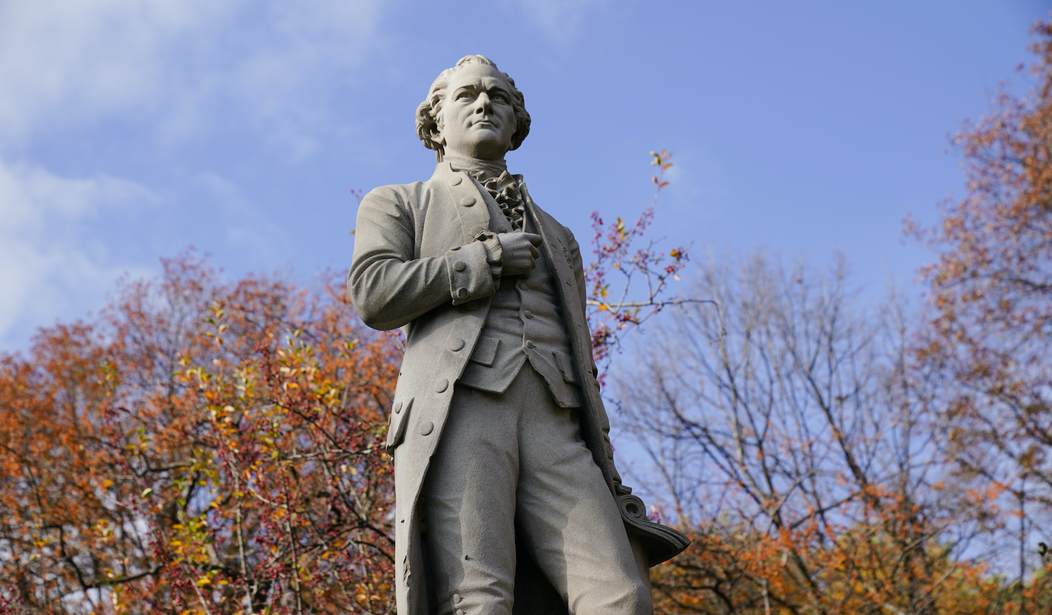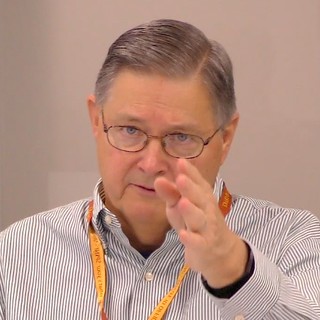America's two founding documents are our Declaration of Independence from 1776, which sparked the flames of revolution against England's tyrannous King George III, and the Constitution from 1787, which established the federal government under which we today live.
No guarantees of success were given to the authors and signers of either document, but one of the most widely shared characteristics among these many exceptionally brave and wise men was a deep faith in the sovereignty of God over the affairs of nations.
Three men in particular stand out among the legions of those with highly influential links to the events and personalities that produced the Declaration and their vital roles in the formation and adoption of the Constitution 11 years later.
Alexander Hamilton of New York, James Madison of Virginia, and John Jay, also of New York, are credited as the joint authors of "The Federalist Papers," the magnificent series of essays that appeared in the media, such as it was at the time, throughout the country as the then-proposed Constitution was being debated by the states.
Little thought is given to this trio anywhere today in terms of what role, if any, religious faith played in their understanding of their hugely important roles in the public life of emerging America.
The reality is that faith played a central role in the lives of all three men, as is made evident by their own words quoted by Benjamin Morris in his "The Christian Life and Characteristics of the Civil Institutions of the United States."
Hamilton's greatest contribution to the nation was his vivid advocacy on behalf of the adoption of the Constitution, in particular the 51 essays he wrote from the Federalist Papers total of 85. His life would be ended years later by Aaron Burr, but before that, Hamilton wrote these words, according to Morris:
The Supreme Intelligence who rules the world has constituted an eternal law, which is obligatory upon all mankind, prior to any human institution whatever. He gave existence to man, together with the means of preserving and beautifying that existence, and invested him with an inviolable right to pursue liberty and personal safety.
Note that Hamilton's reference to the Supreme Intelligence as "He" indicates that his god was not some impersonal and remote power, but a willful, purposeful Creator, who was the author of what Hamilton called the "sacred rights of mankind" and the "Natural Law." This is the Christian God, not the distant Allah of Islam, the inscrutable Buddha, or anything remotely like the Hindu pantheon.
Where Hamilton was mainly identified with the executive branch of the new government, Jay, having served as President of the Continental Congress, was a legislator, but he also penned five of the essays in The Federalist Papers, and, after the Constitution's adoption, he became the first Chief Justice of the Supreme Court.
After the revolution was won, Jay advised his countrymen that they must always remember to whom they ultimately owe their liberty:
We should always remember that the many remarkable and unexpected means and events by which our wants have been supplied and our enemies repelled or restrained are such strong and striking proofs of the interposition of Heaven, that our having been hitherto delivered from the threatened bondage of Britain ought to be forever ascribed to its true cause (the favor of God), and, instead of swelling our breasts with arrogant ideas of our prowess and importance, kindle in them a flame of gratitude and piety which may consume all remains ofr vice and irreligion.
And now we come to Madison, who in my humble view, was every bit of the indispensable man in the formation of the Constitution as George Washington was in defeating the British. Critical to understanding Madison is recalling that he studied under then-Princeton University President, the Rev. John Witherspoon.
A Presbyterian pastor and scholar, as well as a descendant of the great John Knox, leader of Scotland's Protestant Reformation, Witherspoon was a tutor to many of the men of the Founding generation.
Madison's greatest contribution to American liberty, after his writing 29 of the Federalist essays, was his heeding the appeals of Virginia and North Carolina Baptists who insisted upon a Bill of Rights, especially to protect every citizen's freedom of religion, assembly, and speech, rights that were, and are today, essential to political liberty.
He was also President during the War of 1812. It was he and First Lady Dolly Madison who fled the national capital just before the British landed and burned the White House, the Capitol building, and the Library of Congress. It was during that conflict that Madison wrote:
We have all been encouraged to feel the guardianship and guidance of the almighty Being whose power regulates the destinies, whose blessings have been so conspicuously displayed to this rising republic, and to whom we are bound to address our devout gratitude for the past, as well as our fervent supplications and best hopes for the future.
Again we see with Madison, as we did with Jay and Hamilton, an understanding grounded in the supervening authority of the God of the Bible as the key factor in the affairs and health of the American republic.
One wonders how they would advise us today regarding our nation's obligation to that almighty Being.










Join the conversation as a VIP Member